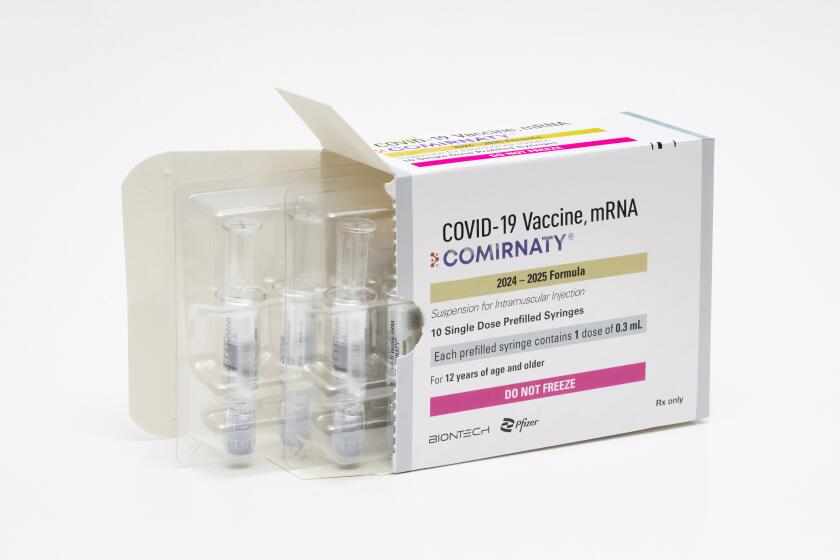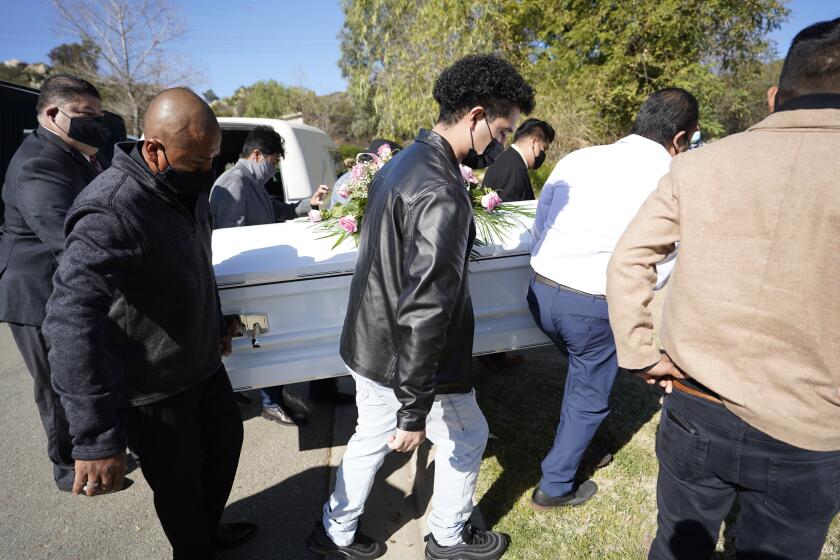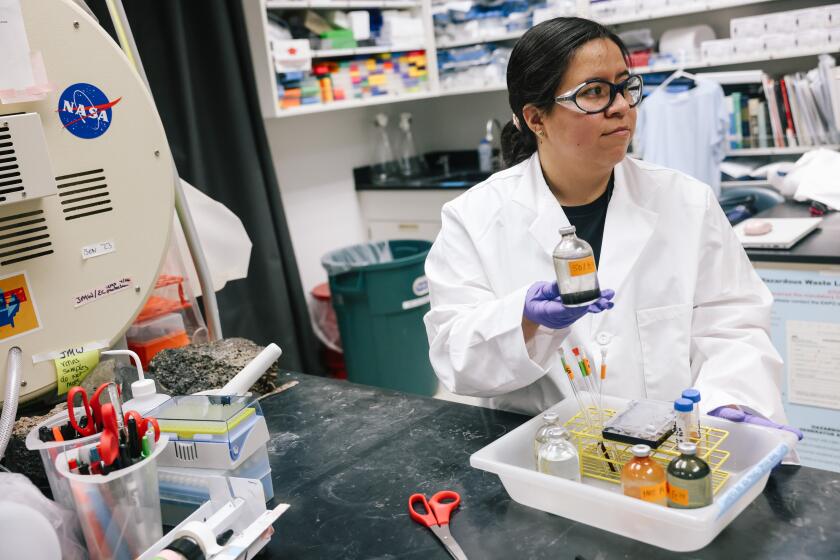A Dangerous Wave: Ride It Cautiously
With nature’s most recent onslaught making many people cringe at each weather forecast, the annual summer battle to beat the heat has switched into high gear. A recent study at the University of Chicago Medical Center shows some of the reasons why that battle must be taken seriously.
The researchers analyzed records of patients admitted to Chicago hospitals during the devastating 1995 heat wave that killed more than 600 people in nine days. The study, published this week in the Annals of Internal Medicine, tracked 58 people--most of whom were elderly--admitted to intensive care units with symptoms of classic heat stroke.
Unlike exertional heat stroke, which is associated with heavy, physical activity, classic heat stroke develops after several days of relentless exposure to extreme heat and usually hits the elderly or sedentary.
Of the 58 patients studied, 33 were in a coma. Twelve died in the hospital. And even those who survived didn’t get by unscathed, said Dr. Maurice Ndukwu, lead author of the study. Some died within 12 weeks after leaving the hospital. Others were permanently disabled.
“It can be catastrophic, afterward,” he said. “There is real danger to [patients’] survival following discharge from the hospital.”
The federal Centers for Disease Control in Atlanta estimates that at least 240 people die in America every year from heat-related illness--and that’s during years when there aren’t any heat waves. In 1980, when there was a heat wave, 1,700 died.
In Texas, where residents have had to tolerate nearly a month of consecutive 100-plus degree days, 93 people already have died from the heat this summer.
*
What to do? The advice sounds simple: Drink plenty of water, stay in air-conditioned rooms, and for heaven’s sake, put off that marathon run in the sun.
But for senior citizens, in particular, the body’s ability to regulate internal temperature starts to dull, putting the elderly at greater risk for classic heat stroke.
Typically, the sweat a person produces to cool down significantly reduces the amount of fluids available to the body. Those fluids need to be replenished. But by the time the brain signals thirst, a person can already be dehydrated.
“Older people don’t recognize thirst as much as a young, healthy person,” said Dr. Jim Knochel, chairman of medicine at Presbyterian Hospital in Dallas and an expert on heat injuries. “There’s a blunting of reflexes for older people.” As a result, they don’t always recognize how much danger they’re in until it’s too late, he said.
In addition to physical problems of old age, many elderly people take medications, such as diuretics, which decrease the amount of fluid in their bodies, thereby making them more vulnerable to the heat.
If the temperature continues to rise to around 99.5 degrees, hyperventilation begins. Rapid breathing brings air in around the mouth and nasal passages in an attempt to cool the blood that passes beneath the brain. But hyperventilate long enough, and the acidity in your blood decreases, resulting in decreased blood flow to the brain. Muscles begin to cramp and hands may tingle. Without relief, the brain starts to fade out. Incoherence and delirium begin.
People with existing heart or circulatory problems face other difficulties. When the body’s temperature reaches 101 to 102 degrees, the heart quickens to pump up to half of the body’s blood to the surface of the skin to release heat.
“Eight liters of blood can go just to the skin,” said Dr. Benjamin Levine, assistant professor of internal medicine at the University of Texas Southwestern Medical Center. “Many people with heart problems just can’t pump blood that fast.” Even if the heart can pump blood fast enough, shifting the blood has a price. In the body’s organ hierarchy, the brain and heart dominate, while the intestines rank low. As blood flow to the gut decreases, the intestines get less oxygen, and the membrane that surrounds them begins to malfunction.
“The intestines become leaky and release really bad things,” said Levine. Toxins released by intestinal bacteria wind up in the bloodstream, causing damage to other organs in the body. Some people have experienced shaking chills and goose bumps because the body thinks it is being attacked by an infection.
After another 24 hours of heat exposure, body temperature goes skyward. “What’s poorly understood is why these people stop sweating,” said Knochel. “But once you stop sweating, you’ve only got minutes left. You’re hot. You’re cooked.”
In an experiment 38 years ago--before ethics committees were in place--subjects collapsed in a heat chamber when their body temperatures reached 108 degrees.
Considering the tremendous havoc heat can wreak on the body, it is not surprising, say medical experts, that many of the patients in the Chicago study never fully recovered. And while the recent study focused on classic heat stroke, experts point out that the effects of exertional heat stroke can be just as devastating.
*
Heat stroke resulting from intense activity progresses much more quickly, taking from 15 minutes to a few hours before the critical stage is reached. Muscles generate an enormous amount of heat when working, ratcheting the body temperature up to 105 degrees. A person who is accustomed to the heat and in good physical condition may be able to tolerate such temperatures, but not for long.
One symptom specific to exertional heat stroke is the rapid breakdown of muscle tissue, which releases enough debris into the bloodstream to plug up the kidneys. In rare instances, muscle deterioration can release enough potassium to stop the heart from beating.
But regardless of whether the heat stroke is exertional or classic, experts stress that it is absolutely critical to begin cooling the patient immediately. “Some people call an ambulance and then do nothing until it arrives,” said Knochel. “Every minute you’re hyperthermic, you’re destroying brain cells.”
Of course, heading off the emergency is ideal, said Knochel. “We tell people to go to the mall,” he said.



